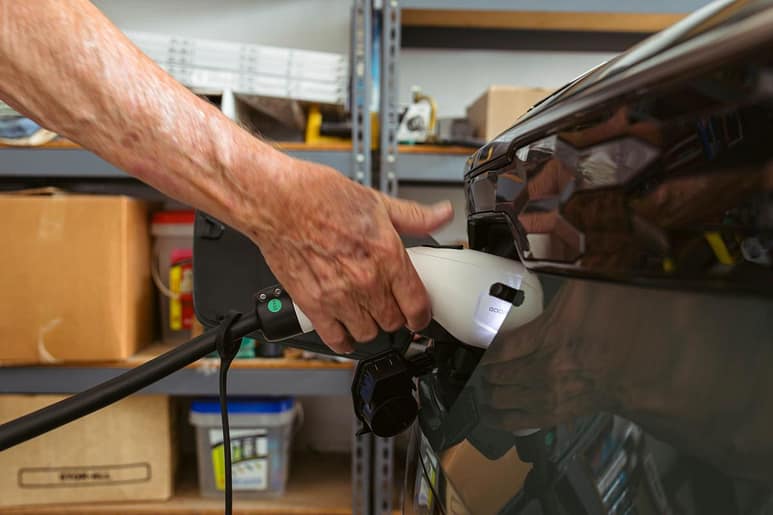(Bloomberg) — US auto stocks and Asian battery makers fell after Reuters reported President-elect Donald Trump plans to eliminate a key consumer tax credit aimed at boosting electric-vehicle adoption.
Most Read from Bloomberg
Trump’s transition team has been discussing ending the $7,500 subsidy as part of a broader tax-reform effort, Reuters said, citing unidentified sources with direct knowledge of the matter. Representatives of Tesla Inc. also support ending the credit, according to the report.
Repealing the subsidy — a major component of President Joe Biden’s signature climate bill, the Inflation Reduction Act — would deal a significant blow to EV adoption in the US, which has already sputtered due to still-high vehicle prices and spotty charging infrastructure. Trump has previously said he would reverse Biden’s EV policies on day one of his presidency.
“The American people re-elected President Trump by a resounding margin giving him a mandate to implement the promises he made on the campaign trail,” said Karoline Leavitt, a spokeswoman for Trump’s transition team. “He will deliver.”
Trump would need Congressional approval to repeal the IRA, which was approved on a party-line vote in August 2022. His transition team has determined some of the policies within the law will be difficult to roll back because certain programs have already started allocating money, including to Republican-dominated states, Reuters said.
Shares of Rivian Automotive Inc. were hardest-hit among major EV makers, plunging 14% in New York trading, the biggest drop since Feb. 22. Tesla also hit an intraday low following the report and closed the day down 5.8%. General Motors Co. and Ford Motor Co. shares declined.
The fallout spread to Asia, with battery maker LG Energy Solution slumping as much as 10% at the open of Seoul trading. LG Energy supplies batteries to automakers including Tesla and GM. SK Innovation Co., the listed parent of battery maker SK On Co., dropped as much as 8%.
“The potential elimination of the federal tax credit for electric vehicles by the Trump administration — without another form of incentive to replace it — could derail the trajectory of EV sales in the United States,” Jessica Caldwell, head of insights for automotive research firm Edmunds.com, said in a note.
While Tesla is by far the top EV seller in the US, Chief Executive Officer Elon Musk has said the company will be better positioned to deal with the potential pullback of incentives. The billionaire has become a member of Trump’s inner circle and accepted a role helping the incoming administration to reduce government spending.

